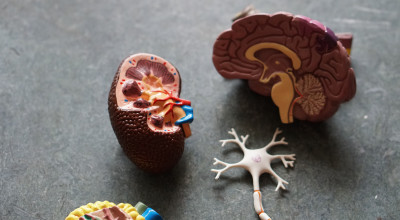What Is a Functioning Alcoholic?
October 15th, 2025
You get up on time, meet deadlines, keep your home running, and maybe even help others through their tough days. But there's a part of your routine that’s hard to ignore, that evening drink that’s quietly turned into several, or the growing sense that alcohol has more control than you’d like to admit. If that sounds familiar, you’re not alone.
The term “high functioning alcoholic” isn’t a clinical diagnosis, but it’s a common way people describe those living with functional alcoholism, individuals who appear to have it all together while quietly battling alcohol dependence. These individuals may hold jobs, raise families, and manage day-to-day life, yet still meet the criteria for alcohol use disorder (AUD). If you’re wondering whether it’s time to take a closer look at your relationship with alcohol or explore alcohol rehab in Austin or elsewhere, this guide can help.
What “High Functioning Alcoholic” Really Means
When people talk about a high functioning alcoholic, they usually mean someone who can hold a job, care for family, and manage daily responsibilities, all while drinking heavily or regularly. The term “high‑functioning alcoholic” isn’t found in medical manuals, but it’s become a way to describe someone who appears fine on the outside while struggling privately.
This can make it harder to recognize there’s a problem. You might not miss work or get into legal trouble, but alcohol has still taken a quiet but serious role in your life. That’s why it’s important to separate what we call it socially from how it’s understood clinically.
In medical terms, Alcohol Use Disorder (AUD) is the actual diagnosis, with levels ranging from mild to severe. The difference is not just how much you drink, but how it affects your control, relationships, and health. Many high functioning alcoholics meet the criteria for mild or moderate AUD, but don’t realize it.
Understanding the definition of a functioning alcoholic helps bring clarity. It’s not just about how much alcohol you consume, but how often it’s becoming a coping tool, a habit, or a hidden priority.
How Common Is Functional Alcoholism?
Functional alcoholism is more common than people think. Because functioning alcoholics often don’t fit the stereotype of addiction, they rarely get counted until health or personal issues bring things to light.
In 2023, around 28.9 million people aged 12 and older in the U.S. had AUD. A large portion of them would be seen as highly functional alcoholics, going to work, taking care of kids, or leading meetings, all while depending on alcohol behind the scenes.
Deaths linked to alcohol have also gone up sharply, rising over 25% since 2020. That points to a growing issue with alcohol use across the board, including among those who may appear to be “doing fine.”
Understanding the functional alcoholic meaning helps make sense of this gap. People who don’t “hit rock bottom” often stay under the radar, but the risks are just as real.
Signs of a Functioning Alcoholic
Signs of a functioning alcoholic aren’t always easy to spot. They can look different from person to person and often hide behind routines or responsibilities. These signs may start small but become patterns that are hard to break.
Some of the most common functioning alcoholic signs include:
- Drinking daily or needing alcohol to unwind after work
- Hiding bottles or being secretive about drinking habits
- Using alcohol to manage stress, anxiety, or social pressure
- Saying things like “I can stop anytime” but never actually cutting back
- Struggling with memory lapses or mood swings tied to drinking
Because someone with functional alcoholism often meets work deadlines and shows up for family events, their behavior can be brushed off as normal or harmless. But these red flags are worth paying attention to.
Recognizing the signs of a high functioning alcoholic early on can lead to better outcomes. It helps to check in honestly with yourself or someone you care about when patterns like these show up.
Self-Check: Am I Hiding a Drinking Problem?
It’s easy to downplay habits that don’t seem to cause major issues. But many people dealing with functional alcoholism finds themselves asking, “Is this really a problem?” or “How do I know if I’m a functioning alcoholic?”
If you’ve started wondering about your relationship with alcohol, this self-check can help you look at it more honestly. These signs don’t always mean addiction, but they do suggest it may be time to talk to a professional.
Ask yourself:
- Do I drink more than I plan, or feel anxious when I can’t?
- Have friends or family quietly expressed concern?
- Do I hide bottles, lie about how much I drink, or downplay it?
- Do I rely on alcohol to relax, sleep, or handle emotions?
- Do I feel guilty or frustrated about my drinking?
If several of these feel familiar, it may point to problematic drinking behavior. Many people experiencing signs of a functional alcoholic can still function day-to-day, but that doesn’t mean they’re in control.
Functional Tolerance (Why Needing “More” Is a Warning Sign)
If you’ve ever said, “I can handle it” or “It doesn’t hit me like it used to,” that’s a clue your body is adjusting and not in a good way. High alcohol tolerance can make someone feel like they’re in control, but it often hides early alcohol dependence.
As your body gets used to alcohol, it takes more to feel the same effects. That doesn’t mean the damage is less, just less obvious. Your liver, brain, and heart don’t build tolerance the way your buzz does.
People with functional alcoholism often drink more than they realize, simply because it feels normal for them. That sense of control is part of why it’s easy to miss the warning signs.
Even if drinking doesn’t lead to blackouts or obvious problems, compulsive alcohol use that builds over time is still serious. The earlier it’s caught, the easier it is to change.
High-Functioning vs. Social Drinking vs. Alcohol Use Disorder
It can be hard to tell when regular drinking crosses the line. Not everyone who drinks often has alcohol use disorder, but not all high-functioning alcoholics recognize when things have shifted, either.
Social drinking usually involves occasional, intentional use with clear boundaries. If you can stop anytime without stress, and alcohol isn’t solving a problem, it may fall into this category.
Functional alcoholism often includes regular drinking tied to emotions, stress, or routines. You might maintain your job or relationships, but alcohol plays a more central role than you’re comfortable admitting.
Alcohol use disorder includes patterns of loss of control, cravings, withdrawal, or consequences that continue despite wanting to stop. Many people move between these stages over time, without realizing how far things have gone.
Consequences That Add Up Over Time
You don’t have to lose your job or relationships to be impacted by functional alcoholism. The changes can build slowly missed appointments, shorter tempers, trouble sleeping, and still feel like “just stress.”
But over time, even high functioning alcoholism can wear down your health, relationships, and peace of mind. The risks aren’t always loud, but they’re steady.
Studies from 2024 and 2025 have shown that moderate drinking is linked to changes in the brain. People with regular drinking patterns show early signs of cognitive decline, memory problems, and decision-making issues, sometimes even when they feel fine physically.
You might not notice the cost right away, but alcohol dependence tends to chip away at mental focus, emotional balance, and even financial security. These aren’t just personal setbacks, they can shift the way you live, slowly but consistently.
Why People Miss the Problem (Denial, Stigma, and Enabling)
Many people don’t recognize the functioning of alcoholism because life on the outside seems under control. Bills get paid, meetings happen, and nobody’s staging an intervention. That’s part of what keeps the cycle going.
It’s easy to tell yourself things like:
- “I only drink after work, so it’s fine”
- “I function better with a drink”
- “I’ve never missed a day of work because of it”
These thoughts can keep someone stuck in drinking issues they don't fully see. It also doesn’t help when friends or family avoid the topic, thinking they’re being respectful or not wanting to judge.
Sometimes loved ones unintentionally make things worse. They might make excuses, cover up the behavior, or avoid hard conversations. That’s not because they don’t care, they just don’t know how to respond.
When to Act: Early Intervention Works
The earlier you notice the signs of functioning alcoholism, the easier it is to make a shift. You don’t have to wait for things to fall apart to take action.
Even small signs, needing a drink to relax, drinking more than planned, or hiding how much you drink, are worth paying attention to. These are often the first steps toward compulsive alcohol use.
Acting early means having more options and a smoother path forward. It can be as simple as talking to someone who understands, asking a doctor about it, or researching support in your area.
Making changes before things get worse isn’t a weakness. It’s the most honest and hopeful thing you can do when alcohol has started taking up more space than it should.
Proven Ways to Get Help
There’s no one-size-fits-all approach to alcohol addiction, especially when it’s tied to functional alcoholism. What matters most is finding support that fits where you are right now, even if things haven’t fallen apart.
You don’t have to do it alone, and you don’t need to wait until alcohol creates bigger problems. Help is available in ways that respect your schedule, privacy, and goals.
Whether someone is a functional alcoholic or struggling with alcohol abuse, there are proven forms of alcohol treatment from short-term support to long-term recovery tools. The sooner help begins, the easier it becomes to regain balance.
These are the most effective options people start with when they're ready to take the next step:
Medical Detox (When It’s Needed and Why It’s Safer)
Detoxing at home might feel easier or more private, but it’s not always safe. Medical detox offers 24/7 care to manage withdrawal symptoms and reduce risks like seizures, dehydration, or dangerous blood pressure swings.
It’s not just for severe cases. Even functional alcoholics can face complications when they suddenly stop drinking. Having medical staff nearby means you’re not just safer, you’re more likely to stay on track.
Many people find that starting treatment in a medical setting builds confidence. It makes the transition into longer-term recovery smoother and more stable.
Therapy Options (CBT, trauma-informed, family work)
Therapy helps untangle what’s behind the drinking, stress, trauma, relationship patterns, or just habits that got too comfortable. You’ll talk with someone trained to guide, not judge.
Cognitive Behavioral Therapy (CBT) is one of the most trusted approaches for substance use disorders. It helps shift patterns and reactions that fuel drinking, with tools you can use every day.
If family dynamics are part of the picture, some programs offer family therapy or trauma-informed care. Recovery isn’t just about quitting it’s about healing the parts that alcohol may have covered up.
Medications for AUD
For some, medication makes it easier to stay in control. Naltrexone, Disulfiram, and Acamprosate are FDA-approved options that reduce cravings, block the “reward” feeling of alcohol, or support brain chemistry as you recover.
You don’t have to take medication, but knowing it’s there can be a comfort. It’s especially helpful for people who’ve tried to quit on their own and keep returning to old habits.
A medical provider can help you decide if these are a good fit for your goals and health.
Peer Support & Aftercare (Relapse Prevention)
Support doesn’t stop after detox or therapy. Groups like AA, SMART Recovery, or online communities offer space to connect without pressure. Hearing “me too” from others can make the journey feel less isolated.
Aftercare matters. That might look like follow-up counseling, group check-ins, or sober living support. Planning for what happens after treatment helps prevent relapse and keeps progress going.
Recovery isn’t just about quitting; it’s about building a life that doesn’t need alcohol to feel manageable or meaningful.
Get Professional, Evidence-Based Alcohol Treatment – Call 830-223-2055 Now
If alcohol has started to take up more space in your life than it should, there’s support that actually works. You can call 830-223-2055 to speak with someone today, no pressure, just help.
Whether you’re looking for options, have questions, or want to take the next step, our team is here to guide you through it. All calls are confidential, and same-day assessments may be available.
We offer alcohol addiction treatment designed for people who don’t always fit the stereotypes, including those with jobs, families, and a life they want to keep moving forward.
If you prefer to start online, a simple contact form can help you begin. Recovery is possible, and it starts with one honest conversation.
References
- Substance Abuse and Mental Health Services Administration (SAMHSA). (2024). 2023 National Survey on Drug Use and Health: National Results. Retrieved from https://www.samhsa.gov/data/data-we-collect/nsduh-national-survey-drug-use-and-health/national-releases/2023
- Time Magazine. (2022, May 18). Alcohol-Related Deaths Increased During the COVID-19 Pandemic. Retrieved from https://time.com/6178578/alcohol-death-covid-19-pandemic/
- Frontiers in Aging Neuroscience. (2025). Moderate alcohol consumption does not protect cognitive function. Retrieved from https://www.frontiersin.org/journals/aging-neuroscience/articles/10.3389/fnagi.2025.1569069/full
FAQs
What is a functional alcoholic, and how is it different from alcohol use disorder?
A functional alcoholic often maintains daily responsibilities while meeting criteria for alcohol use disorder (AUD). It’s less about appearance, more about patterns and effects.
What are the signs of a high functioning alcoholic?
These include hiding drinking, needing more to feel relaxed, drinking daily, or using alcohol to manage emotions, even while life appears stable.
Do you have to drink every day to have a problem?
No. Problems with alcohol can come from how you drink, why you drink, and how hard it feels to stop, not just how often.
Can someone recover without professional help?
Some people do, but most benefit from some form of support, especially if they’ve tried before and struggled. A plan and community often make a big difference.
Is detox at home safe?
For some, maybe. But withdrawal can be serious or even dangerous. A medical detox is safer, especially if alcohol has been a long-term or heavy habit.


